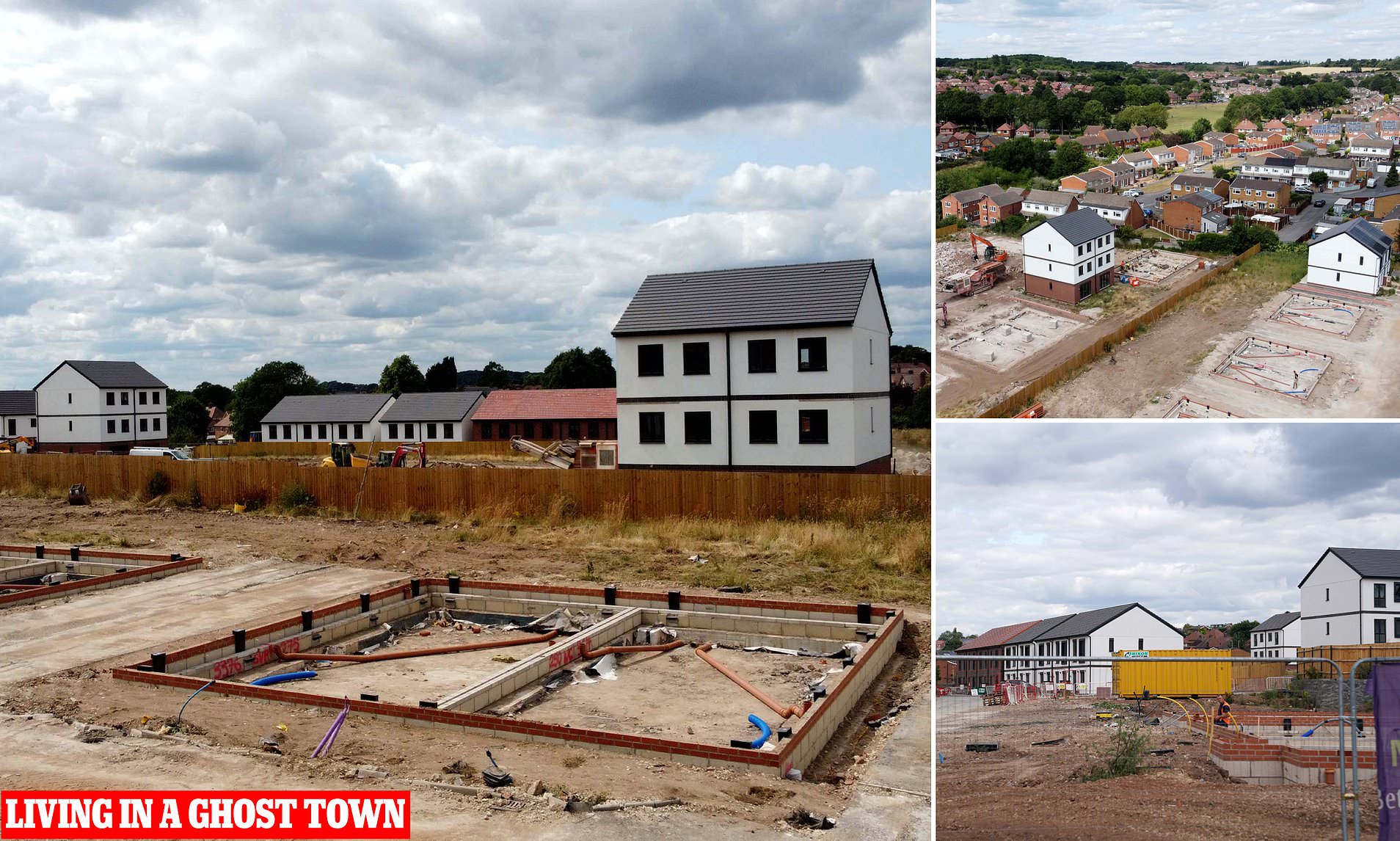Residents stunned as 50 abandoned houses demolished amid builder's collapse

It’s every new homeowner’s worst nightmare: purchasing a property, finalizing the paperwork, and then—nothing. This became the harsh reality for dozens of families in Nottingham after developer Ilke Homes collapsed in June 2023, leaving behind 43 unfinished homes that quickly fell into disrepair.
The Birch Fields estate in Arnold was meant to be a modern housing development offering open-plan living in a serene setting. Instead, what residents received were cozy newbuilds surrounded by construction debris, exposed metal frames, scaffolding remnants, and the constant noise of diggers and machinery. For those who had already moved in, the dream of peaceful suburban life was replaced with an ongoing building site, where the promise of completed homes remained unfulfilled.
However, hope has finally begun to take shape. Thanks to the intervention of Morro, a Midlands-based housing developer, work has resumed on rebuilding the abandoned properties. Unlike Ilke Homes, which specialized in factory-built structures, Morro is constructing the replacement homes using traditional brick—an effort to ensure durability and quality for future tenants.
Eddie Lowe, Morro’s construction manager, explained that the original homes left incomplete after Ilke’s collapse had deteriorated significantly. Without roofs, many became damp and infested with mold. “We’re starting from scratch,” he said. “These homes will be built properly—with brick facades—and we expect them to be ready by 2026.”
The project is being carried out in partnership with Jigsaw Group, a housing association responsible for overseeing the allocation of these affordable homes. Many of the affected families had waited years for stable housing, only to face months of uncertainty as construction stalled. Some were forced into temporary accommodations, staying with relatives or even living in hotels while they awaited news about their new homes.
One such family, taxi driver Hossein Ali and his wife with their two children, finally moved into a three-bedroom semi-detached home in March. While grateful for having a roof over their heads, they live next door to four terraced houses still undergoing repairs due to persistent issues with solar heating panels and flat roofs. “There’s a lot of noise,” Ali admitted, “but at least we’re not among those still waiting.”
Others, like mother-of-seven Yasmin Akthar, spent three years in temporary housing before moving into her council-owned home last November. She acknowledged the necessity of demolishing the damaged structures. “It makes no sense putting people into a place that’s damp and full of mold,” she said. Her family now resides in one of the factory-made homes that survived the demolition phase, though she admits the exterior material feels more plastic than brick. Still, she says, “We’re thankful.”
Carl, a Derby City Council worker who lived homeless for eight months, also recently moved onto the estate. He and his partner, along with his daughter and young nephew, had been offered hotel accommodation but opted to stay with family until their new home was ready. “We love living here,” he said. “It was either this or nothing.”
Despite the ongoing construction, most residents remain optimistic. Beauty therapist Gemma Handley, who relocated with two of her four children, said the noise doesn’t bother her. “I hardly notice it,” she said. Another unnamed resident, a single mother who had been sofa surfing for months, echoed that sentiment: “You turn a blind eye to the construction and try not to let it bother you.”
Still, the presence of a construction zone within a residential neighborhood has its challenges. Rajan Rajput, a local businessman and father of two, noted how the view from his home office is far from ideal. “I’d like to be able to let my kids go out and play without worrying about them,” he said. He emphasized how long-term stays in hotels or transitional housing can impact mental health and family stability.
Jigsaw Homes has assured current residents that ongoing construction will not interfere with their daily lives. The newly built homes must meet strict compliance standards set by the National House Building Council (NHBC), ensuring safety and longevity. Once completed, the 85 affordable homes will be allocated to individuals and families on Gedling Borough Council’s housing waiting list.
John Clarke, leader of Gedling Borough Council, acknowledged the difficulties faced by both residents and housing providers since Ilke Homes’ collapse. “Jigsaw Homes have done everything they can to get this site back on track,” he said. “We appreciate the patience of the residents who have been waiting for one of these new homes.”
The land that now hosts the Birch Fields estate was once owned by Nottinghamshire County Council, which previously operated a depot on the site. What was once industrial space is slowly transforming into a community of brick-built homes, offering shelter, security, and a fresh start for those who have waited too long for it.
For families like the Alis, the Akthars, and countless others, the sounds of progress are music to their ears. Though the road to homeownership has been anything but smooth, the promise of a better future is finally beginning to take shape—brick by brick.
Post a Comment for "Residents stunned as 50 abandoned houses demolished amid builder's collapse"
Post a Comment